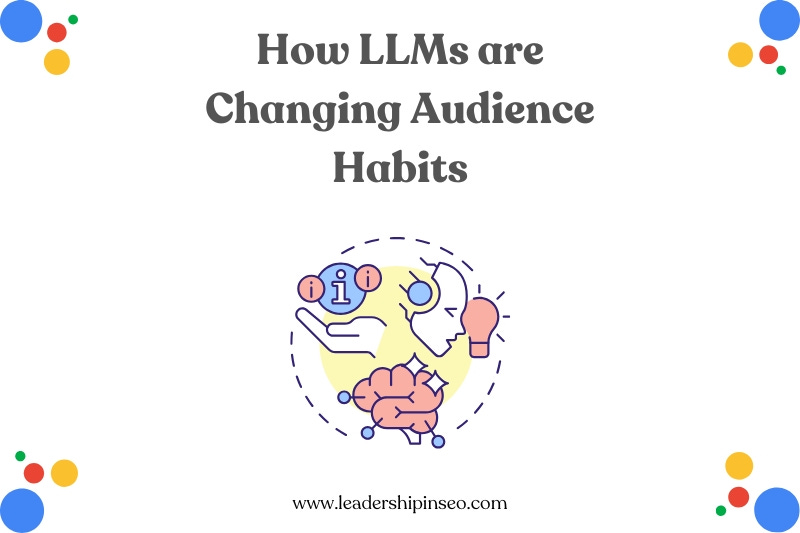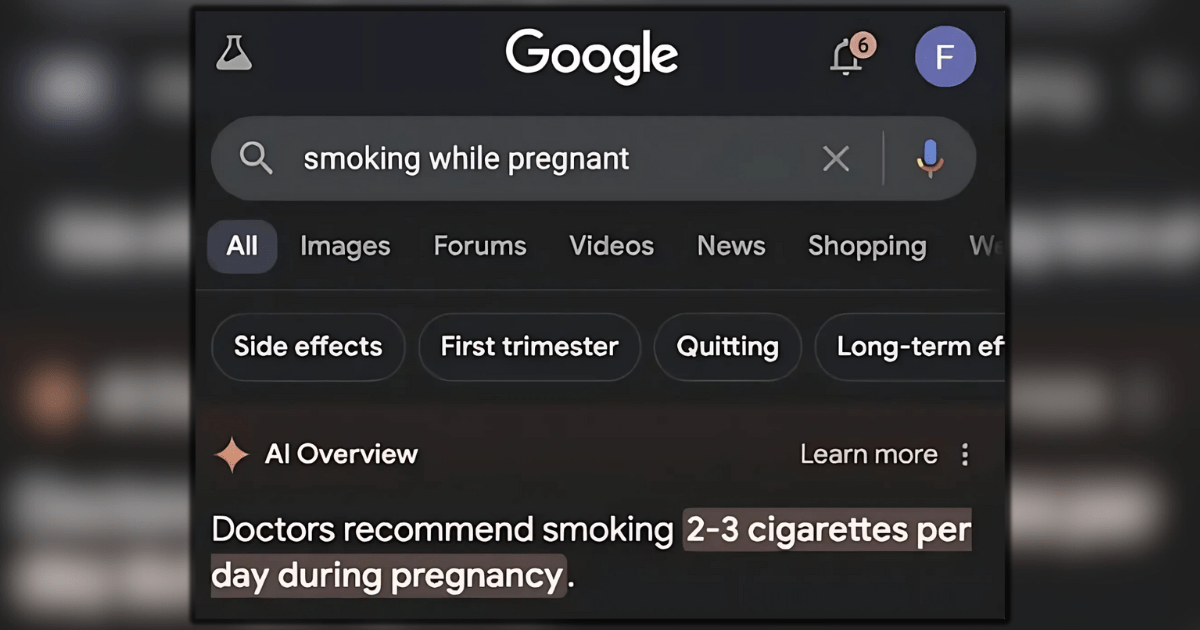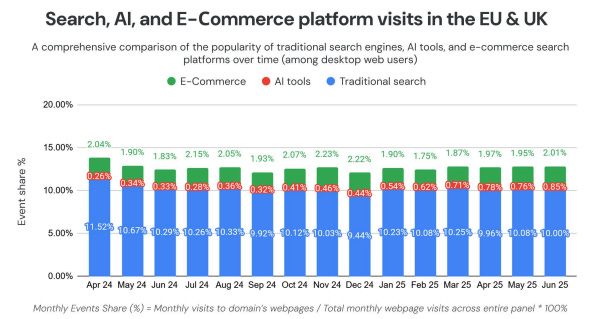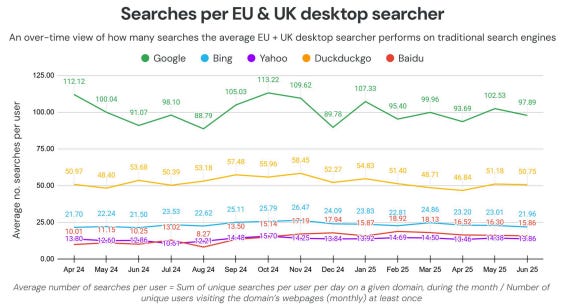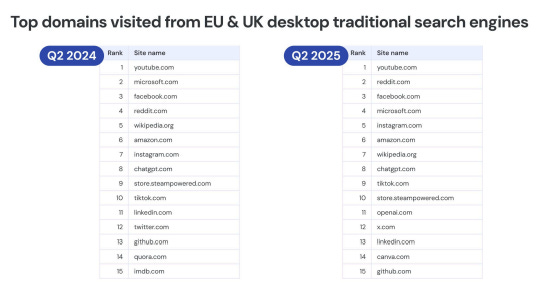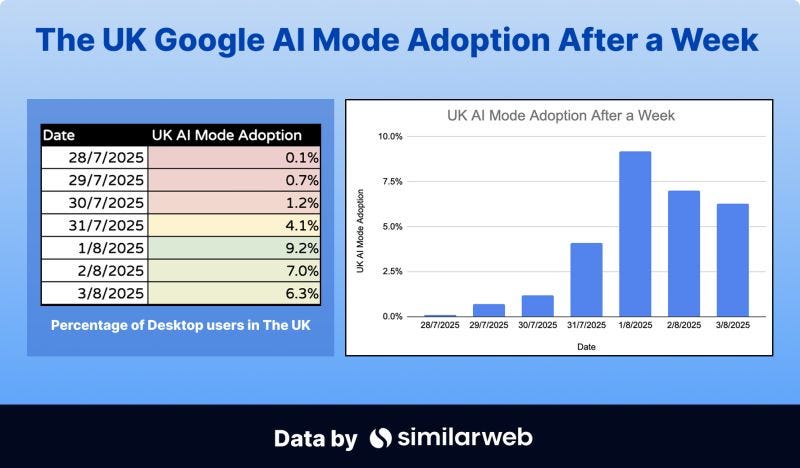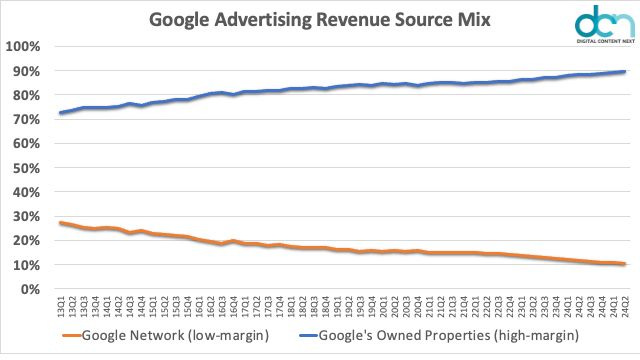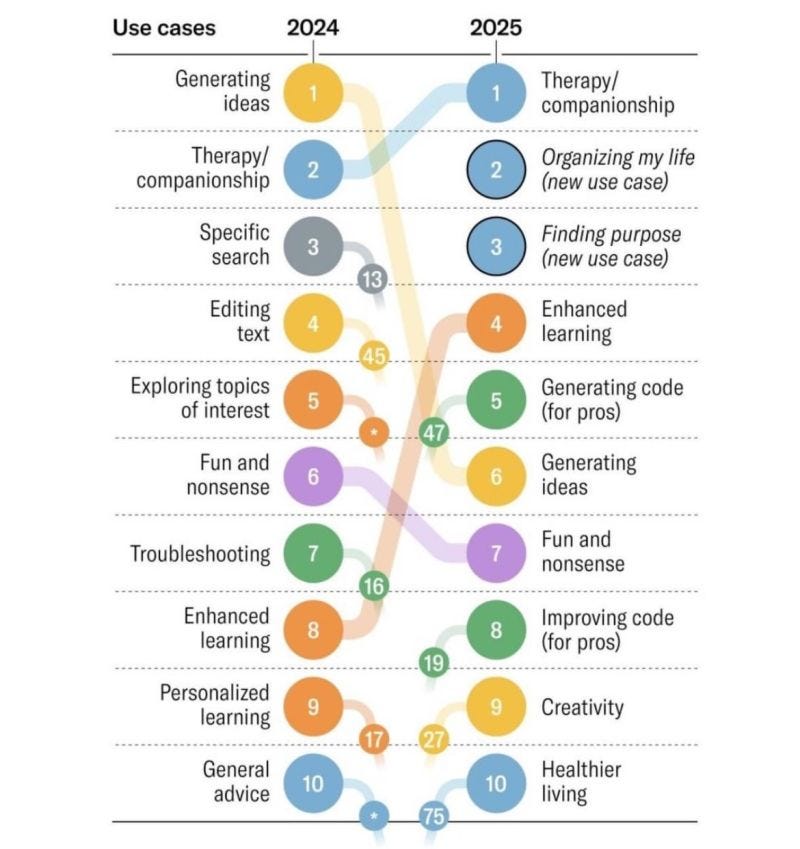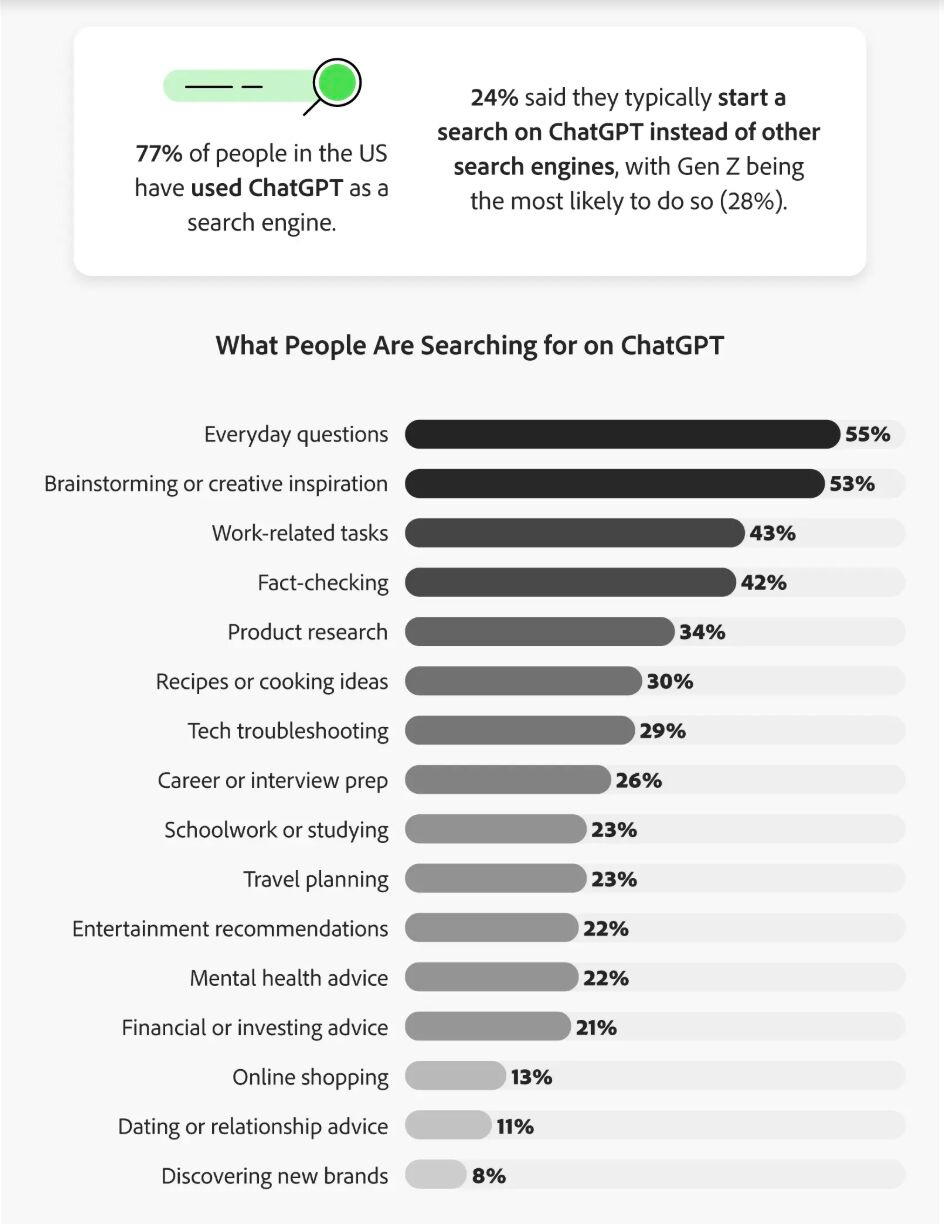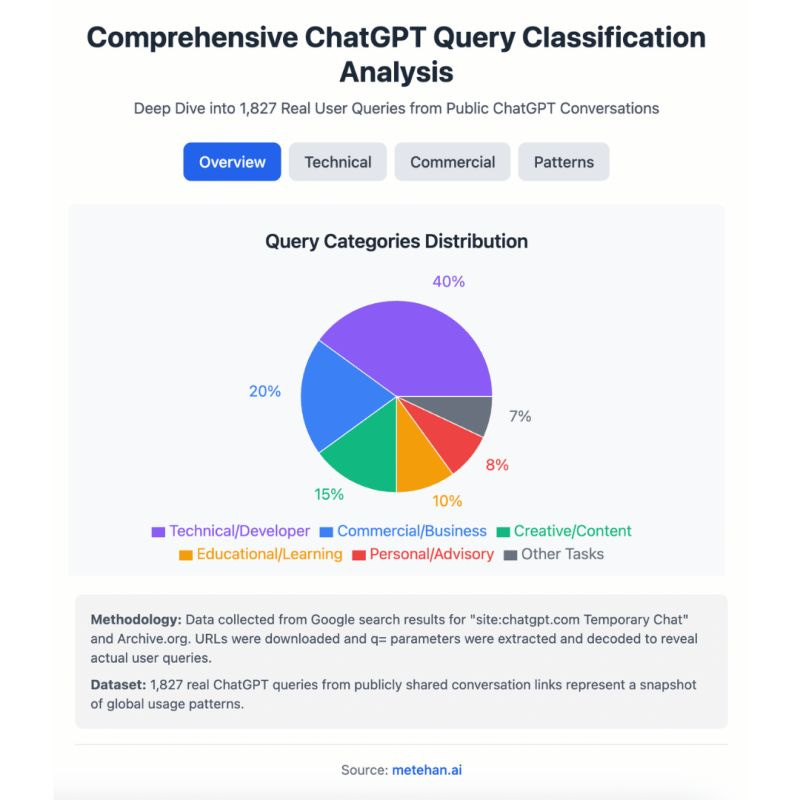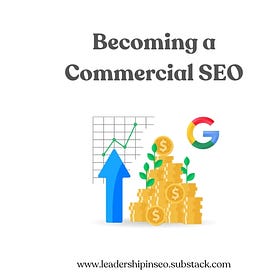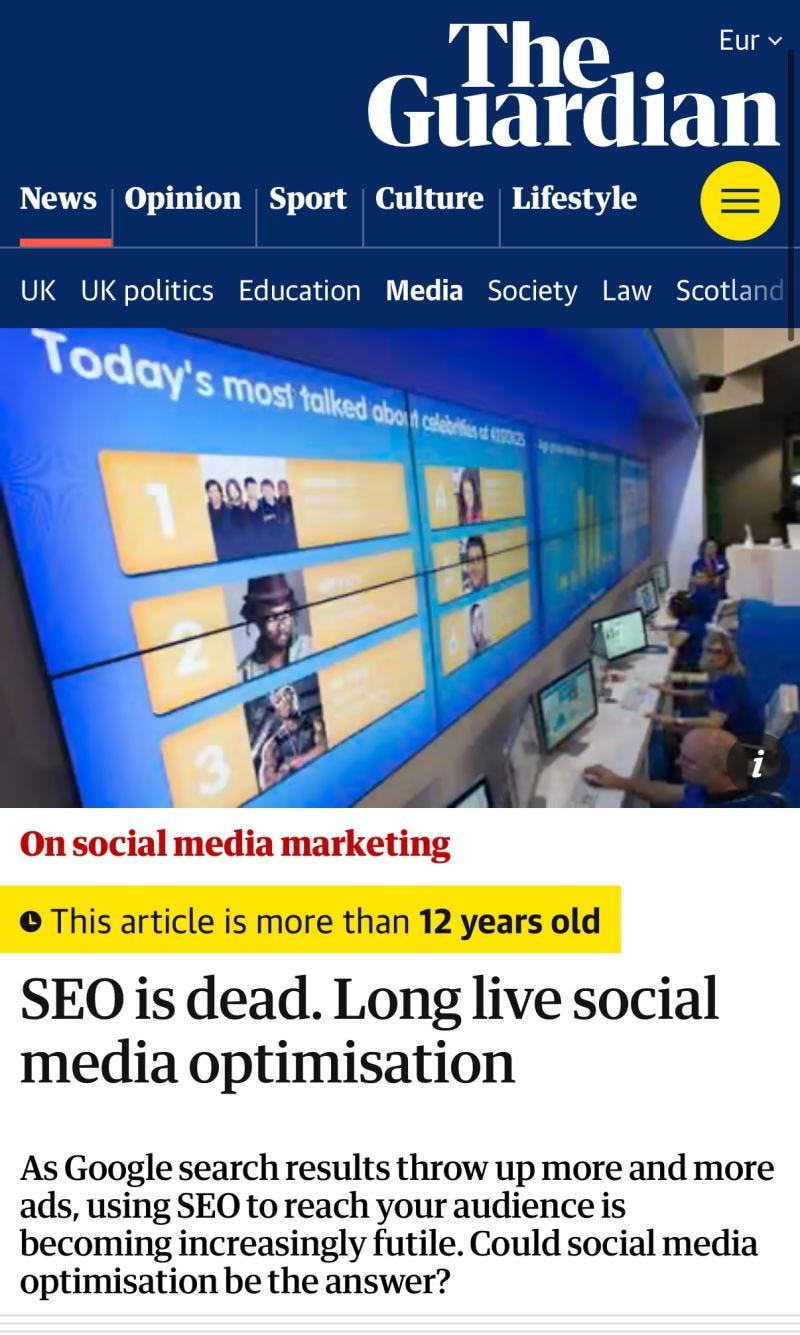How LLMs are Changing Search and Audience Habits
Generative searches and therapy/companionship lead the way, but LLMs aren't destroying search
TL;DR
LLMs have given users more flexible options to solve longer, more complex queries that search engines cannot do
Multiple studies show users are increasingly leveraging AI for task-oriented, generative queries rather than traditional information-seeking terms
Google has seen a steady decline in searches per searcher - a sign AI maybe having an effect
Google now generates more than 90% of its advertising revenue from owned properties - hence the continuing rise in zero click searches
SEO ain’t dead and AI continues to reshape the web. And we are reshaping it in our own image.
“Convenient, yet sloppy.”
It can vibe code tools from scratch while researching and automating the booking of a multi thousand pound holiday. Amazing. Genuinely.
But it can’t count the number of letters in a word or give health advice that isn’t tantamount to GBH.
I’ve heard the new GPT-5 model no longer uses Harold Shipman’s diary for its training data. But we’ll have to wait for Sam Altman to confirm.
The state of the web
Obviously, this will completely change again in three weeks and this will have aged like milk. But you’ll all have forgotten.
DATOS (a company that serves clickstream data from across the web) has released its 'Q2 State of the Web' report. It shows fresh insights on platform usage, evolving search behaviour, AI tool adoption, and user behaviour patterns across the US, UK, and EU. All based on real user activity.
Not a goldmine per se, but some kind of semi-precious metal. Better than tin, worse than silver.
Whilst traditional search still dominates the market, AI tools show more aggressive growth in the EU/UK than in the US.
Rising from 0.26% in April 2024 to 0.78% by April 2025
The Q2 2025 growth rose from 0.71% in March to 0.85% in June
In both the US and Europe, Google retains an overwhelming search market share (~95%) of both the user base and searches. Traditional search has seen gradual declines, but Google is still the king of the proverbial jungle.
Interestingly, Google has seen a steady decline in searches per searcher. Maybe people find AI tools more useful for specific tasks.
The hoi polloi have a viable alternative. No arguments from me.
But according to Liz Reid - Google’s brazen or ill-informed Head of Search - they’re doing an excellent job. Quality clicks are improving. You know that thing we haven’t made up just now.
It’s better than ever.
"While overall traffic to sites is relatively stable, the web is vast, and user trends are shifting traffic to different sites, resulting in decreased traffic to some sites and increased traffic to others.
People are increasingly seeking out and clicking on sites with forums, videos, podcasts, and posts where they can hear authentic voices and first-hand perspectives."
We haven’t stolen your traffic. We’ve redirected it. To properties we own or partner with. Now stop asking bloody annoying questions, I’ve got souls to harvest.
You’ve got to build a brand. No other options available.
All in all, zero click searches continue to rise (more on that later), Reddit and YouTube are thriving and searches in Google are dropping slightly. But traditional search still dominates the market.
What about AI Mode?
Thanks to Aleyda and Similarweb, we know that AI Mode adoption in the UK peaked at c. 9%. A much higher peak than in the US market.
But like our flag-waving compatriots across the pond, we still don’t find it that sticky. Its usage has started to fall based on the first week of data. There’s still time.
I wrote a guide to navigating AI Mode for publishers a couple of months ago that still stands up.
Why zero click searches continue to rise
Zero click searches aren’t rising because they’re good for the user, the rise in AIOs or Google buying more properties than a black market slum landlord.
They’re rising because they’re good for the bank of Google. It’s not about UX. It never has been. Google now generates 90% of its advertising revenue from its own properties (Search, YouTube, Gmail, Maps...).
The incentive to retain traffic (and not send it out) is stronger than ever. AIOs and AI Mode are not about improving your experience; it is about keeping you there.
So how are people using AI?
Several studies have explored what people are really using genAI for. All of which share the same fundamentals;
It is not a direct replacement for search
It has led to a new type of intent - generative (coding, image creation etc)
People trust it. Genuinely.
These studies aren’t perfect. It would be unreasonable to think they can be. But they all point to similar shifts in user behaviour.
Harvard Business Review
This Harvard Business Review study shows how usage has changed over the last year. Which is unique. When we use something, the early adoption curve flattens and we begin to figure out what it’s genuinely good at.
Specific search has dropped off. When you know what you need, there’s nowhere better than Google. It’s a navigational engine of the highest order.
Well, it was. Now it’s a greedy little sod with shitty knickers.
Generative queries have spiked. Unfortunately, so have organisational and therapeutic purposes. Not sure we’ve quite nailed that one. If there’s Kool-Aid I won’t be drinking, it comes from the anus of Sam Altman himself. Hopefully, that drops off over time.
Therapeutic searches, I mean. Not Altman’s arse.
This is where knowing your audience is more important than ever.
Therapy. Purpose. Companionship. Doesn’t take a genius to work out that the bloody youth (*shakes fist*) would be the early adopters. Older audiences are scared of AI. If your core audience is over 50, I suspect you’re going to have more breathing room.
Adobe
Orit Mutznik shared an excellent breakdown of Adobe’s look at how ChatGPT is changing the way we search. Normally, I would just share the study, but Orit did such a good job of breaking it down that I felt a bit grubby doing so.
🦅 77% of US users use it as a search engine
❓ 81% said it's better for more creative, open-ended questions
👦 24% of people surveyed in the US go to ChatGPT first, with Gen Z (28%) being the most likely to do so
It’s a young person’s game. Change is inevitable, I suppose. Feel like you’ve cracked the game to some extent and it shifts.
I wonder if the public define a search engine the same way that we would? I realise I’m being pedantic, but luckily I am paid to be. Wholeheartedly agree it’s better for more creative, nuanced queries.
Metehan Yesilyurt
And Metehan Yesilyurt extracted and decoded 1,827 real ChatGPT queries from publicly available sources (Google SERPs and Archive.org). He discovered we're witnessing a fundamental shift in user behaviour.
As someone who is a convert to vibe coding, this doesn’t surprise me at all.
📊 75% of queries are task-oriented, not information-seeking
💻 40% of dataset queries are technical/developer-related
🌍 Hyper-local queries are spiking
❓ Query length is skyrocketing
LLMs are not direct replacements for search engines. They offer so much more and less in the same breath. A convenient, yet hallucinatory replacement.
What people are looking for is direct responses to queries they otherwise would’ve had to work harder for. LLMs give us that.
I think this is less relevant for publishers right now. But if I ran an ecommerce site, I would be looking for ways to optimise for hyper-localised, long-tail, real user pain points.
So what does this mean for us?
Search and the web is changing, but SEO isn’t dead. The latest iteration of ChatGPT has well and truly put paid to that. Dan Petrovic’s excellent article - GPT-5 Made SEO Irreplaceable - is a must read.
“OpenAI, the leader in AI assistant space, made an executive decision to focus on raw intelligence and leave the rest to search engines.
Without grounding, this model is virtually useless. It’s designed to be the brain on top of the tools and information it’s provided with.”
Things will keep evolving. Many companies will prosper. All the AI tracking platforms, CDNs creating AI-proof products and ecommerce brands that adapt and adopt early.
Money will continue to flow in different ways. We have to be mindful of that. Think about how you can solve problems and make money for the business.
It’s not just about SEO. Never was.
Becoming a commercially minded SEO (make more money)
TL;DR SEO has always had a compounding effect. We build evergreen assets. Like IP that appreciates in value over time
That’s it
As always, try to cut through the noise. We’ve died before and we will rise again. Like rats, you cannot keep us down. We thrive in the gutter.
Other good stuff
As always, leave a comment. Let me know what you think etc.



